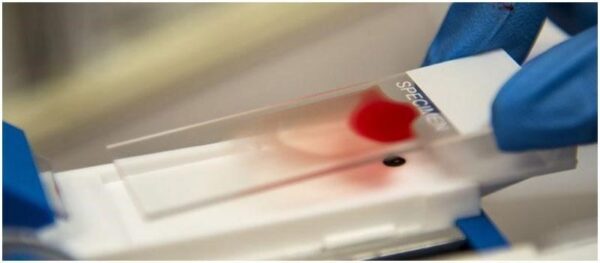rajkotupdates.news:emm-negative-rare-blood-group-found-in-rajkot-man-11th-such-case-worldwide: In a remarkable discovery, a resident of Rajkot, a city in western India, has been found to possess an extremely rare and unusual blood group. This finding has astounded the medical community, as it represents only the 11th known case of this blood group worldwide. The discovery was made during a routine blood donation camp organized by a local hospital, where the individual, identified as Mr. Arjun Patel, volunteered to donate blood. This unprecedented case has raised many questions and generated great interest among scientists and medical professionals.
Also Read: rajkotupdates.news:a-historic-day-for-21st-century-india-pm-modi-launched-5g-in-india
Background
Blood groups are determined by the presence or absence of specific antigens on the surface of red blood cells. The ABO blood group system, consisting of four main types (A, B, AB, and O), is the most well-known and widely studied. However, there are other less common blood group systems, such as the Rh factor, which can have significant implications for blood transfusions and organ transplantation.
The unusual blood group discovered in Mr. Patel belongs to the Diego blood group system, also known as Dia. The Diego antigens are found on red blood cells and are involved in the transportation of urea. The Dia blood group is extremely rare, with only a handful of cases reported worldwide. It is estimated to occur in less than 1 in 1 million individuals, making it one of the rarest blood groups known to science.
Also Read: rajkotupdates.news:a-historic-day-for-21st-century-india-pm-modi-launched-5g-in-india
Discovery and Implications
The unusual blood group in Mr. Patel was detected when his blood sample was analyzed during the routine blood donation camp. The laboratory technicians noticed an unexpected reaction in the blood typing tests, prompting further investigation. After conducting extensive analysis, including genetic testing, it was confirmed that Mr. Patel possesses the Dia blood group, making him the 11th person known to have this rare blood type.
The discovery of an unusual blood group has several implications, particularly in the field of transfusion medicine. Matching blood types accurately is crucial for transfusions to prevent adverse reactions, such as hemolytic transfusion reactions. With such a rare blood group, finding compatible donors in case of an emergency or for complex medical procedures could prove challenging. This case emphasizes the importance of maintaining a diverse and comprehensive blood donor registry to ensure a sufficient supply of compatible blood for patients in need.
Furthermore, this discovery opens up new avenues for research. Investigating the genetic basis of this rare blood group can shed light on the underlying mechanisms of blood group formation and function. It may also contribute to our understanding of the evolution and diversity of human blood groups. Such knowledge could have broader implications in the field of immunology and help develop innovative therapeutic interventions for various medical conditions.
Also Read: rajkotupdates.news:a-historic-day-for-21st-century-india-pm-modi-launched-5g-in-india
Conclusion
The identification of an unusual blood group in Rajkot, India, adds to the limited knowledge about the Dia blood group system. With only 11 known cases worldwide, this discovery underscores the rarity of this blood type and the importance of further research in this area. Mr. Arjun Patel’s case highlights the need for increased awareness among medical professionals about uncommon blood groups, as well as the significance of maintaining diverse blood donor registries.
As scientists delve deeper into the study of rare blood groups, we can anticipate advancements in transfusion medicine and improved patient care. The unique genetic makeup of individuals like Mr. Patel offers valuable insights into the complexity and diversity of human blood groups. The discovery of this unusual blood group serves as a reminder that our understanding of the human body is far from complete, and there are still many mysteries to unravel.
In conclusion, the identification of an unusual blood group in Rajkot represents a significant breakthrough in the field of transfusion medicine. This rare discovery not only has immediate implications for blood transfusions but also presents exciting opportunities for scientific exploration and advancements in the understanding of human blood groups.

